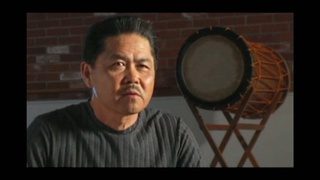Interviews
The myth of the sacrifice of immigrants (Spanish)
(Spanish) We’re a group that still believes we are immigrants. That is why we don’t get together, why we don’t give ourselves to the native land. And part of this immigrant’s logic is to inherit this entire mystic notion, this example. The blood is not the only thing you inherit; you inherit the example, the gesture. And yes, I continue to observe in the third, fourth generations of sansei people that yes… but well, for the good, they very smartly put it where they want to. They sometimes stray but they get back to the same place. They go out but return to the correct path, the kami. In my case, or in the case of the Nisei, it’s terrible. We took and sometimes I feel that I take… ahh, what you refer to as sacrifice, to duty, of example… hangs over my shoulders. It is now like an obstacle, the fear that it will defeat me. Look, think. There was a moment in my life that I thought ‘I can’t even kill myself; I can’t auto eliminate nor commit suicide, even if I wanted to because it is bad example’. I still continue to think like this because it would be a bad example for my nephews, relatives, bad example for living a courageous life, dedicated to literature, and cultural promotion. And in the end I auto eliminate myself. What’s the phrase? ”See, you shouldn’t be like this because you’ll end like this”. I can’t even do that. Life belongs to us until a certain point, and then it doesn’t. That is the detail of being a Nikkei. Life belongs to us until certain point because we’re very moral. We’re moral. Every immigrant people are messianic. They feel they have a mission, the mission of giving a good example: the mission to inhabit the earth: the mission to take the good word, good attitudes, something positive… a lot of energy to the rest, especially to the family, to your closest circle. So, yes, it is not a legend, it’s a fact. We live with that, and that is another way of being a Nikkei too. It’s not bad, but yes it’s exhausting.
Date: February 26, 2008
Location: Lima, Peru
Interviewer: Harumi Nako
Contributed by: Asociación Peruano Japonesa (APJ)











